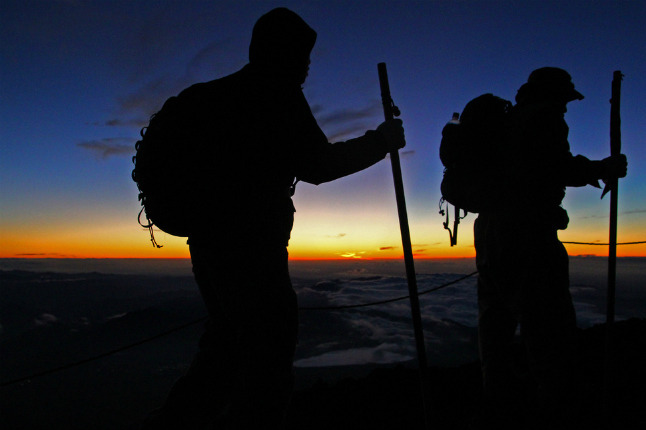What Is Altitude Sickness—and How Can You Avoid It?
For those of us living an adventurous lifestyle, we find it occasionally catches up to us—and maybe not always in the way we expect. The daredevils among us know that broken bones or at least a few scrapes are an inherent possibility, but there are some other side effects of our adventurous travels that we might not always think about. Altitude sickness is one of those oddities that's a little bit mysterious and very annoying.
If you've ever skied the Rockies, trekked in Nepal or visited Ecuador you may have already experienced altitude sickness. Characterized by a throbbing headache, queasy stomach, dizziness and feelings of exhaustion, altitude sickness is caused by traveling to high places too quickly. When the air gets thinner, your body struggles to take in enough air and then you feel sick.
The ailment, also called acute mountain sickness, typically starts to begin affecting some people at around 8,000 feet. It affects each of us in varying degrees, and who it hits worst is still a mystery—neither your age nor gender nor fitness level seems to help in predicting whether or not you will experience altitude sickness.
The symptoms may be mild or severe and they may take a day or so to take full effect. Some say it feels like a hangover. In rare cases, altitude sickness can become extreme, effecting the brain and lungs, in that case it can be deadly and it's imperative that those affected get to a lower altitude and seek medical help.
Mild cases of altitude sickness can be treated by going to a lower altitude, using an oxygen machine or taking an over-the-counter pain reliever (to offset the headache). Though it's easier and less painful to prevent altitude sickness.
How to Avoid Altitude Sickness
- Try to spend time at an altitude in between your normal altitude and where you plan to go.
- Sleep at a lower altitude when possible, for example if you're skiing a particularly high mountain, find a low altitude place to stay overnight.
- Limit strenuous activity.
- Drink extra water, even before you're thirsty.
- Eat carbohydrate-rich foods like bread, cereal and pasta.
- Avoid drinking too much alcohol.
- You might want to consider taking acetazolamide (Diamox), as it's been shown to help with altitude sickness, but consult your doctor beforehand.
